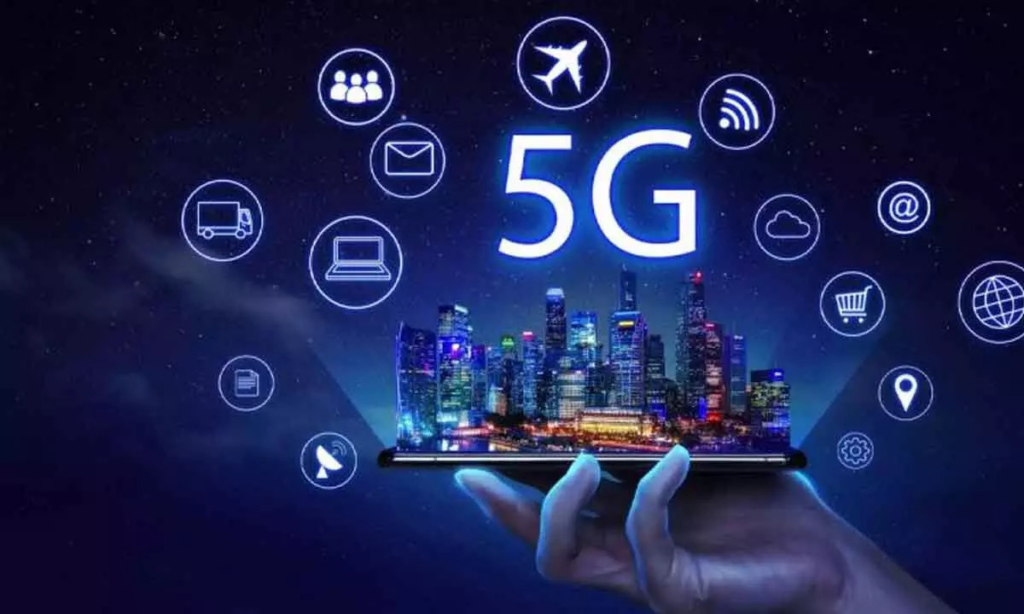
In the fast-paced, interconnected world of today, the role of technology in shaping our lives cannot be overstated. One of the most significant technological advancements in recent years is the advent of 5G, a revolutionary leap forward in connectivity. This article explores the profound impact of the 5G revolution on communication, industries, and our daily lives.
Introduction
Definition of 5G
5G, or the fifth generation of mobile networks, represents a quantum leap in wireless communication. It is not just an incremental improvement but a transformative technology designed to offer unprecedented speed, low latency, and massive device connectivity.
Importance of 5G in Today’s Digital World
As our reliance on digital communication and data-intensive applications grows, the need for a faster and more reliable network becomes paramount. 5G addresses these needs, promising to redefine the way we connect, communicate, and conduct business.
Evolution of Connectivity
Brief History of Mobile Network Generations
To appreciate the significance of 5G, a brief look at the evolution of mobile networks is essential. From 1G’s analog voice calls to 4G’s high-speed internet, each generation laid the foundation for the next, culminating in the capabilities of 5G.
Advancements Leading to 5G
The journey to 5G involves advancements in wireless technologies, signal processing, and infrastructure development. Innovations in antennas, spectrum utilization, and data compression contribute to the evolution of mobile networks.
Key Features of 5G
Increased Data Speed
Perhaps the most touted feature of 5G is its ability to deliver significantly faster data speeds compared to its predecessors. This translates to quicker downloads, smoother streaming, and a more responsive online experience.
Low Latency
Low latency, or the delay in data transmission, is a game-changer for applications like online gaming and augmented reality. With 5G, the delay is reduced to a fraction of a second, opening doors to new possibilities in real-time interactions.
Massive Device Connectivity
In the era of the Internet of Things (IoT), 5G ensures that a vast number of devices can connect simultaneously without sacrificing performance. This is crucial for the seamless operation of smart cities and interconnected ecosystems.
Impact on Communication
Enhanced Video Calls
With 5G, video calls reach new heights of clarity and stability. High-definition video conferencing becomes accessible to a broader audience, fostering better communication in both personal and professional settings.
Augmented Reality Experiences
5G’s low latency and high data speeds enable immersive augmented reality experiences. From gaming to virtual shopping, users can seamlessly blend the digital and physical worlds.
Improved Remote Collaboration
The rise of remote work is further facilitated by 5G, providing professionals with reliable and high-speed connectivity for virtual collaboration. This has become especially crucial in the wake of global changes in work dynamics.
Industries Revolutionized by 5G
Healthcare
The healthcare industry benefits from 5G through faster transmission of medical data, enabling remote patient monitoring and telemedicine services. This has proven critical, particularly in times of global health crises.
Manufacturing
In the manufacturing sector, 5G supports the implementation of smart factories. From robotic assembly lines to real-time monitoring of equipment, the efficiency gains are substantial.
Autonomous Vehicles
The era of autonomous vehicles is significantly advanced by 5G connectivity. Vehicles can communicate with each other and with infrastructure, paving the way for safer and more efficient transportation.
Challenges and Solutions
Network Security Concerns
The rapid deployment of 5G brings about concerns regarding network security. As more devices connect to the network, vulnerabilities increase. Robust security measures are essential to mitigate potential risks.
Overcoming Infrastructure Challenges
Implementing 5G requires a massive infrastructure overhaul. From deploying new towers to upgrading existing ones, the challenges are significant. However, these investments are crucial for the long-term benefits 5G offers.
Global Adoption of 5G
Leading Countries in 5G Implementation
Certain countries have emerged as leaders in the adoption of 5G technology. Understanding the global landscape provides insights into the trajectory of technological development and economic competitiveness.
The Race for 5G Dominance
The competitive race among nations and telecom companies to establish 5G dominance is fierce. The geopolitical implications of this race extend beyond technology, shaping international relations and economic influence.
Consumer Benefits
Faster Downloads and Streaming
For consumers, 5G translates to faster downloads and seamless streaming experiences. This is especially relevant in an era where content consumption is increasingly digital.
Improved Gaming Experiences
Gamers benefit from 5G’s low latency and high speeds, enjoying lag-free online gaming and enhanced multiplayer experiences. This aligns with the growing popularity of esports and competitive gaming.
Environmental Considerations
Energy Efficiency in 5G Networks
While the benefits of 5G are evident, there are concerns about its environmental impact. Efforts are being made to ensure that 5G networks are energy-efficient and sustainable, aligning with global initiatives for a greener future.
